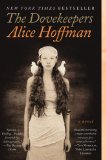Summary | Excerpt | Reading Guide | Reviews | Beyond the Book | Readalikes | Genres & Themes | Author Bio

A Novel
by Alice Hoffman
We packed up our few belongings - the goatskin tent, the handheld spindles we used to spin wool, our knives and the griddle, a jar in which there was still some oil, the lamp that we burned to mark the Sabbath, though there was little enough oil to do so. We moved on, searching for water. We ventured onward beneath the inky sky in the early mornings, during hours that were less brutal, before the sun emerged from the dark. Our route led us to a well, but it was dry. It led to an orchard, but it was barren. Olive trees had withered here, their silvery bark turned to empty shells. It was said that the nomads who crossed this wilderness were often forced to kill their camels and drink hot blood when their thirst could not be contained. There was no grass, and even the herds of ibex, wild goats who were unafraid to race across the rockiest cliffs, didn't often venture into this harsh land. Only the leopards came here. Though they were mysterious and rare, we occasionally spied paw prints. These were the fastest animals in all creation, unearthly in their beauty, but they journeyed alone. Only those who lived cut off from all others of their kind would come here.
We went forward, believers with nothing to believe in. Our lips were so dry they cracked and turned white. Sia rubbed the last of the olive oil on her sons' mouths, so their lips would not bleed. The days piled up like twigs, bent and useless. At last we found a cave to shelter us from the light and wind. There was a pool of still water, murky, with a lacy film across the surface, unclean, yet we put our faces into it like dogs. The east wind, Ruach Kadim, came up from Edom, flaming with heat. We wound ourselves in linen scarves, thin fabric made from flax, cooler than wool, perhaps because the reeds from which this fabric was made from had grown in marshes and carried water in the thread. We veiled our faces, making sure to keep our hands over our ears. Even then we couldn't drown out the sound of the desert; the howling railed against us like a living being.
WE STAYED in the cave for days on end, too spent and parched to go on, afraid of meeting with the Roman garrison that patrolled the desert. We burned bits of the thornbushes we found to frighten away the jackals. A drift of white smoke rose from the mouth of the cave, the ash catching in our eyes and throats. The assassins hunted, but they found no game. They prayed, but there was no relief. I still cut my leg with a sharp rock. If I didn't keep track of my life, no one else would. As time passed we began to starve. Again I wondered who among us could outlast the others. Our hunger kept us rapt and exhausted. We slept so many hours I could not tell the difference between my waking life and my dreams. I dreamed of Jerusalem and of my mother and of the flame tree in the marketplace. Those images were more real to me than the foul stink of the cave. Secretly, I had begun to eat the damp earth where moisture gathered near the rocks. My skin turned dusky, and it appeared that the desert was spilling out of me, the way they say sand pours out when you stab a demon with a knife that has been blessed and cleansed in pure water.
One night my father and Ben Simon slit the donkey's throat. There are those who say animals have no spirits, but I heard the donkey scream. It had a voice like any man or woman, one that begged for breath and life. When I ran out to the cliffs, I could still hear its echo. The men said a prayer thanking God for what they had convinced themselves had been an easy death for the poor creature, for they'd used a ritual knife; then they made a fire out of a pile of twigs and roasted the meat. I could see pools of the donkey's dark blood on the hillside below our cave. The stars were above us in the sky. Some could be seen quite clearly, others were hidden in the murk of the darkness. We waited for the morning star, which we named Cochav hashachar and others called Venus, looking for it to break through the sky in bands of pale, shimmering light and give us one more day.
Excerpted from The Dovekeepers by Alice Hoffman. Copyright © 2011 by Alice Hoffman. Excerpted by permission of Scribner. All rights reserved. No part of this excerpt may be reproduced or reprinted without permission in writing from the publisher.
When you are growing up there are two institutional places that affect you most powerfully: the church, which ...
Click Here to find out who said this, as well as discovering other famous literary quotes!
Your guide toexceptional books
BookBrowse seeks out and recommends the best in contemporary fiction and nonfiction—books that not only engage and entertain but also deepen our understanding of ourselves and the world around us.